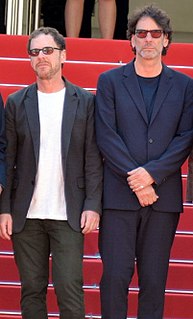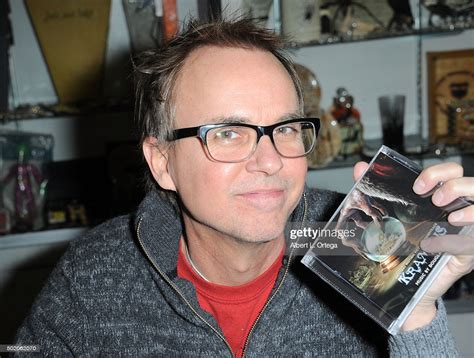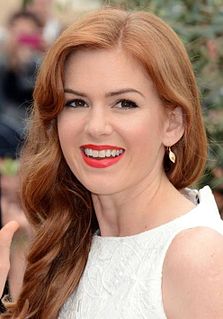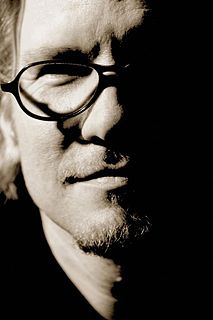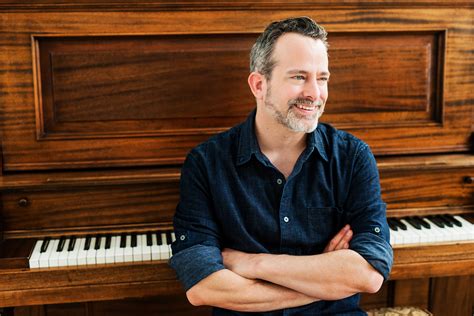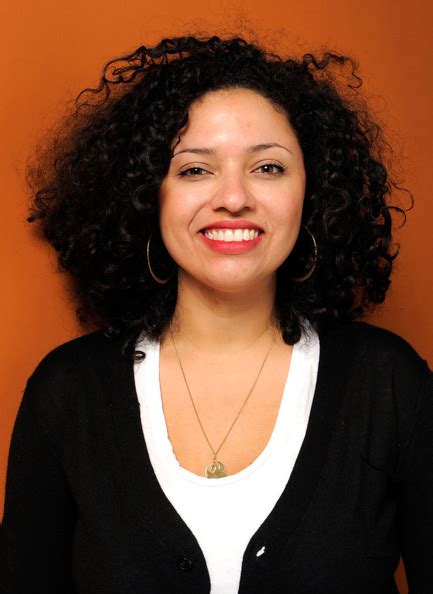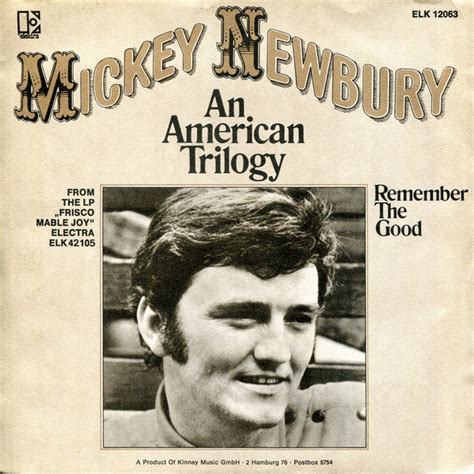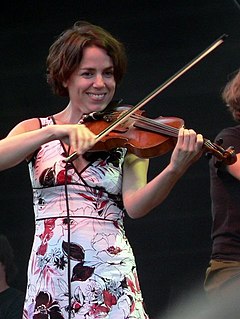A Quote by Dennis Hopper
I think 'Easy Rider' might have been the first time that someone made a film using found music instead of an orchestral score. No one had really used found music in a movie before, except to play on radios or when someone was singing in a scene.
Related Quotes
My interest in music tends toward being orchestral music. And the repertoire of music that exists is, to me, far more emotive than what is standardly used in movie scores. That isn't always. I think there've been some excellent movie scores by excellent directors. But for the most part, watching a film, one of today's movies, I think that the emotional undertone of movie scores is pretty poor.
Music, for the moment, has been this hidden thing for me. For the first time, I am master of something. I am not used by someone else, like in movies or pictures, where you always have the happiness or disappointment of knowing it's you seen through someone else's point of view. You go to see a film and half of the pretty scenes are not in it-the ones you liked. Living with this frustration all the time, suddenly music came as the best thing for me at home, where no one can tell you anything.
I mean, take 'Chariots Of Fire.' That opening scene, the long shot of the runners along the beach, and then you hear that music... I think that was one of the first times synthesizers were really used in movie music. I just flipped! I didn't even care what the story was going to be. Give me a nice marriage of sound and music.
I was playing in a band and was approached to score an independent film. I had never done it, but had written instrumental music, so I figured I could do it. Turns out I loved scoring the film, and took on another couple films before realizing that if I was to be an effective narrative composer, I should study the craft of composition. I stopped taking projects and got a degree in orchestral music composition, and followed that with film scoring studies. Near the end of my degree studies, I started taking on student films as a way to get back into film scoring.
After moving to Los Angeles in the early '90s, I started looking into "music for picture" more seriously and in broader scope. My collaboration as a programmer and arranger with Graeme Revell exposed me for the first time to the full spectrum of film music, including the hectic demands of orchestral scoring and the power politics surrounding the finalization of any score for a major motion picture in Hollywood.
I'm from a singing family, but they're not professional singers, only gospel - my grandfather was a minister. I started to sing the music that was out then because my mother used to play it all the time. It was the end of the '50s, the beginning of the '60s. There was Frankie Lyman and the Teenagers, Etta James... We used to sit outside on the stoop and sing. We even used to put our radios and record players outside.
One of the earliest memories I have of feeling the power of film music was watching Willy Wonka & the Chocolate Factory. That was a really clear epiphany for me, when I realized that each film has its own music, and that there was someone out there who wrote this very specific music for just this one film.
Remember the first time you went to a show and saw your favorite band. You wore their shirt, and sang every word. You didn't know anything about scene politics, haircuts, or what was cool. All you knew was that this music made you feel different from anyone you shared a locker with. Someone finally understood you. This is what music is about.
If you take a movie like Easy Rider which everyone counts as the beginning of New Hollywood, that is a big movement. And then, when you really dissect that film and the people that were behind that movie, you realize that it has Roger Corman written all over it. Easy Rider is a hybrid film, taking The Trip and The Wild Angels and making a new explosion. And the people that were making it, guess what, they were all [people who had worked with Roger Corman].
The first song I wrote and had published was titled "Just As Long As That Someone Is You". It was written in 1959, and recorded in 1965 by Jimmy Ellege. I started writing songs because I wanted something of my own to sing. I, at that time, was not aware that the songs I heard on the radio were not written by the folks singing them. I had always loved poetry, and found it easy to integrate a melody with poetry.
I had a lot of time to myself, and I would listen to a lot of music, mostly music that I knew fairly well and had a relationship with. And I'd think, well, what is it that I've never been able to do that this person or people are able to do with this song? Why haven't I been able to do it, and what can they do that I wish I could do? And then I'd try to do that. I'd start each day getting into the songs, and I'd think about how I might get closer to this music that I love, but haven't been able to make before.



